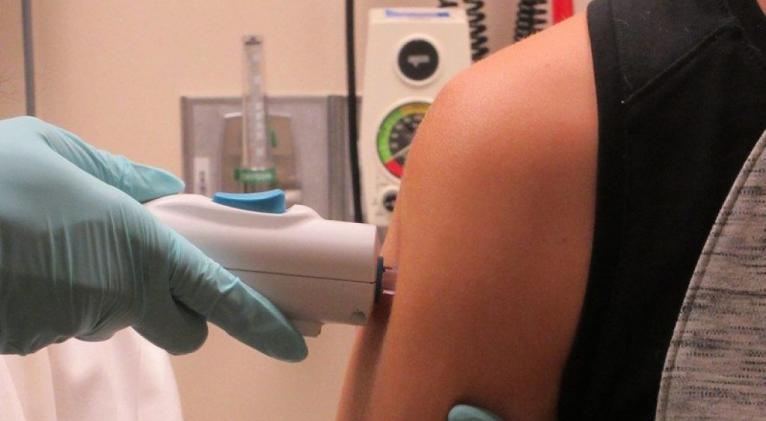Zika vaccine trials begin – but fears remain over virus’s impact
especiales

There’s finally some progress in the fight against Zika. A vaccine is being given to 160 people in Zika-hit Puerto Rico, and a preliminary study has identified two existing drugs that seem to protect human brain cells from the virus.
The vaccine, developed by Inovio Pharmaceuticals, contains a synthetic DNA fragment similar to one in the virus itself. The company hopes that people who receive it will develop immune protection against Zika.
The two drugs that might be useful as a treatment came from an analysis of thousands of compounds, including some drugs that are used to treat other conditions. Zika seems to target cells that make new neurons in the brain and stop them from working properly. This is thought to cause the horrendous brain defects seen in some babies born with the virus, and could also put infected adults at risk of memory and mood disorders.
A team of researchers from the US and China identified one drug – currently in clinical trials for liver diseases – that protects brain cells from damage, and 10 others that stop Zika from replicating, one of which is an already-approved drug used to treat worm infections. A combination of two compounds could be an effective Zika treatment, say the authors, who hope to start testing in animals soon.
But we are still some way off having treatments ready for use on the ground, says Edwin Trevathan, a paediatric neurologist at Vanderbilt University in Nashville, Tennessee, who advises the US Centers for Disease Control and Prevention (CDC) on Zika. “Even if the vaccine development moves as quickly as we’d like, realistically it will be a year before we have something we can use to protect people,” he says.
Transmission cases
The development is welcome after a couple of weeks of bad news. Last Friday, the CDC described the first known case of Zika transmission from a man who had shown no symptoms of illness to his sexual partner, a couple of weeks after he returned from the Dominican Republic. The news came days after a finding that Zika had remained in an Italian man’s semen for six months after a trip to Haiti – around three times longer than previously seen in people.
At the same time, doctors and scientists are warning that the effects of Zika could be worse than thought, and may not affect some babies for several years, when it could impact their brain development. “It could affect parts of the brain that don’t manifest their function until the age of 2, 4 or 6,” says Travathan. “Sadly, I suspect that many of us who take care of children will see the effects of Zika for a long time. This is a problem that may have been dramatically underestimated.”
Until we have vaccines and treatments, efforts are under way to stem infections and the spread of Zika-infected mosquitoes. Last Friday, the US Food and Drug Administration recommended testing for Zika virus in all donated blood before it is used. The organisation has also fast-tracked the approval of a commercially available Zika diagnosis kit.
The CDC has set aside $6.8 million to fund public awareness, diagnosis and mosquito surveillance – although this is only a fraction of the $1.9 billion that the Obama administration has requested from Congress. And new polls suggest that most people living in Florida support the release of genetically modified mosquitoes that could help stem the spread of the virus.













Add new comment